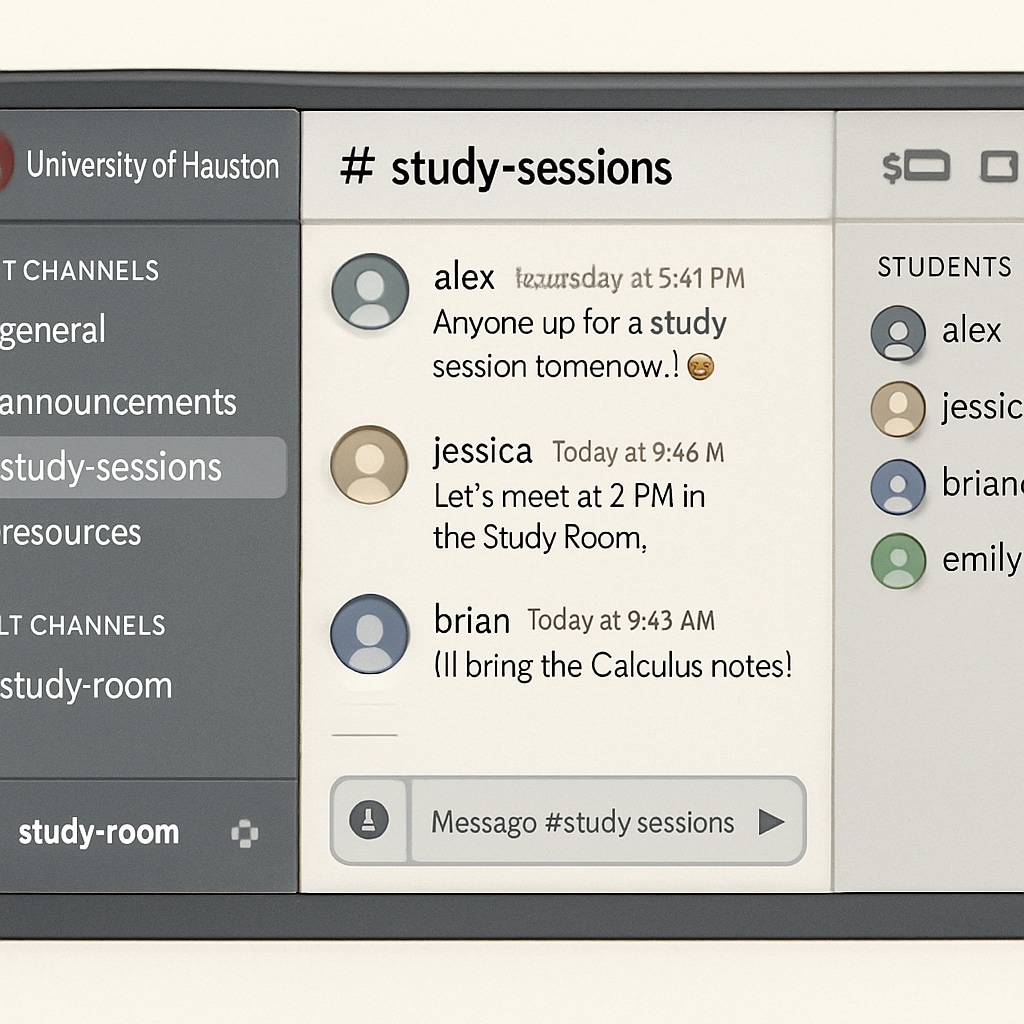Collaborative learning is an essential skill for students transitioning from K12 to higher education. Resources like study groups, platforms such as Discord, and well-established learning communities at institutions like the University of Houston play a pivotal role in shaping academic success. These tools not only enrich students’ learning experiences but also prepare them for the challenges of university life.
The Importance of Building Collaborative Skills in K12 Education
During the K12 education phase, students are introduced to foundational skills that influence their future academic and professional lives. Collaborative learning—working together to solve problems, share ideas, and achieve goals—is one of the most impactful techniques. Teachers can create opportunities for students to engage in study groups, fostering teamwork and mutual support.
For example, study groups encourage students to exchange knowledge, clarify doubts, and learn from peers, promoting deeper understanding and retention of information. In addition, platforms like Discord, which are widely popular among students, provide an engaging virtual space for collaboration. This technology allows students to interact beyond the classroom, sharing resources, hosting discussions, and organizing group activities.
How the University of Houston Supports Collaborative Learning
The University of Houston has embraced the concept of learning communities to enhance student engagement. These communities range from formal academic study groups to informal online platforms where students can connect based on shared interests. By leveraging tools like Discord, students can form virtual groups, participate in real-time discussions, and maintain connections across diverse academic fields. This approach complements traditional study groups by offering flexibility and accessibility.

In addition to virtual platforms, the University of Houston provides physical spaces for collaboration, such as dedicated study areas and resource centers. These facilities encourage students to form connections, exchange ideas, and tackle academic challenges together. As a result, students develop both academic proficiency and interpersonal skills that are crucial for success.
Lessons for K12 Educators: Preparing Students for Collaborative University Life
K12 educators play a critical role in preparing students for the collaborative demands of university life. Introducing platforms like Discord during high school can familiarize students with tools they will commonly use in higher education. Assigning group projects, encouraging peer feedback, and organizing student-led discussions are effective ways to build teamwork and critical thinking skills.
Furthermore, educators can emphasize the importance of accountability within study groups. Encouraging students to set group goals, assign roles, and regularly assess progress ensures that collaboration remains productive. By practicing these skills early, students are better equipped to navigate the collaborative environments at institutions like the University of Houston.

Finally, educators can highlight the value of diverse perspectives within collaborative learning. When students from varied backgrounds work together, they gain insights that broaden their understanding and foster inclusivity. This mirrors the diversity within university learning communities, such as those at the University of Houston.
As a result, preparing students for collaborative learning not only enhances their academic performance but also equips them with essential life skills, such as communication, adaptability, and teamwork.
Conclusion: Building Bridges to Academic and Social Success
Learning communities, whether facilitated through study groups or platforms like Discord, are vital to academic and personal growth. The University of Houston exemplifies how institutions can support students in forming meaningful connections that transcend the classroom. By integrating these concepts into K12 education, educators can ensure that students are well-prepared for the collaborative challenges of university life and beyond.
Ultimately, fostering collaborative learning skills empowers students to thrive in diverse academic environments, building bridges to both academic success and lifelong friendships.


